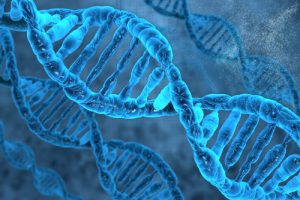Academia is Part of our DNA

Collaborative From The Start
Since the days of selling the Optic Injector, our company has been looking for innovative new technologies and identifying problems they can solve before introducing them into the market.
It’s worth noting that new technologies aren’t a priority for everyone. Most lab managers, particularly those involved in routine analysis, are mostly concerned with reliability and quality of support to make sure samples get through on time with minimal fuss. Academic institutions however, are often more highly motivated to get new technologies into their labs.
Asides from the obvious benefit of having more tools to solve their analytical problems, developing novel approaches that harness new technologies also offer clear paths for writing papers, getting published, giving talks and generally raising the profile of the institution (and the individual). The reality of course is that there isn’t usually a lot of spare money available for novel, unproven instrumentation.
From our perspective, when a certain sector has a specific problem to solve, academic institutions are often the first place we go when looking for help. In many cases, we’ll collaborate closely by way of loan instruments or PhD sponsorships to get technologies off the ground and do the scientific groundwork needed. Engaging with institutions in this way can give us a pipeline of emerging problems that we may have a commercially viable solution to.
Since academics are an important source of information for policy makers, this often gives us an inside track on regulatory pressures – the main driver of our industry.
More diverse inputs often lead to more innovative outputs.
Another major benefit of cross-sector collaboration is the diversity of thought that it brings.
Academia, similarly to R&D labs, are more prone to think outside the box and push the boundaries of what is established within the community. Their approaches are derived from all sorts of inspiration. The same scientist may well be working on problems from both the pharmaceutical and environmental testing sector, like Ruth Godfrey of Swansea University.
For businesses interested in long-term profits, the name of the game is mitigating failure. For academia, it is all about maximising success.
Bridging the Gap
We like to think this is where we shine as a company.
We could reel off a number of fairly zany projects we’ve been involved with that haven’t translated into much commercial value. Like attempting to predict the sex of un-hatched chics, potentially saving the poultry industry untold amounts of time and money wasted on incubating unwanted males.
If we were chasing purely short-term metrics, we probably wouldn’t have worked with University of Manchester on their pioneering work on Parkinsons. Or engaged with the National Physics laboratory to find the most viable ways of determining the purity of hydrogen fuel cells.
Both of these are potentially hugely beneficial for society. We’ve always been rewarded in the long run for pursuing projects like these.
Working together to solve the big problems.
As Ruth mentioned in the above video, if we expect to solve societies biggest problems (and by extension separations sciences’ problems), we need to improve the channels of communication between government, commercial and academic institutions.
This was echoed by Elia Elia Psillakis of the University of Crete who took the time to talk us through her work that bridges the gap between academia and industry. Like Ruth, Elia is emblematic of the collaborative relationships that events like this can spark.
At the Future Focus event, we have put together a program of talks and Q&A sessions with that kind of diversity that will stimulate debate between some of the brightest minds in the industry.
Click the link to see the full agenda and sign up today. We look forward to seeing you there.
Ruth will be presenting: QuEChERS Approach for the Analysis Contaminants in Biota and Surfactants on Day 1, Session 2 – The Future of Sample Preparation: Reinventing the Old to Tackle the New.
Elia will be presenting on Day 1, in the The Future of Analytical Chemistry: Greenness and Sustainable Analysis session. Be sure not to miss her talk: Analytical Greenness Metric for Sample Preparation.


